#rodgers and hammerstein's cinderella (1957)
Text
PRELIMINARY ROUND! MATCH 2 OUT OF 5 - BATTLE OF THE RODGERS & HAMMERSTEIN'S CINDERELLA ADAPTATIONS!
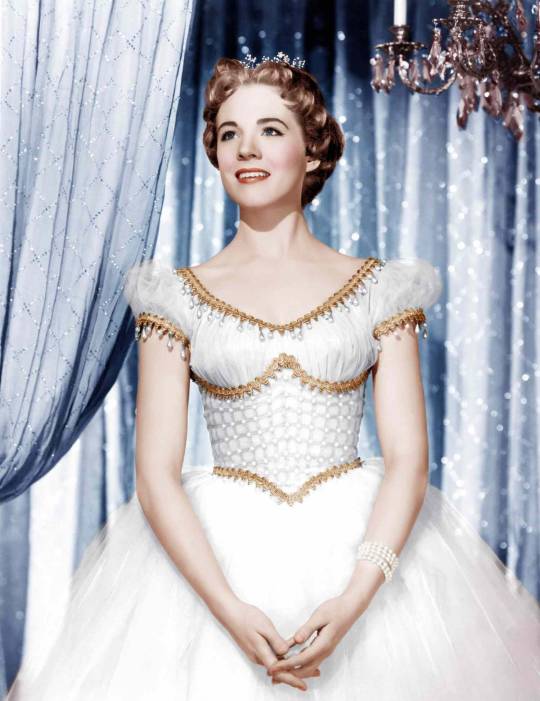
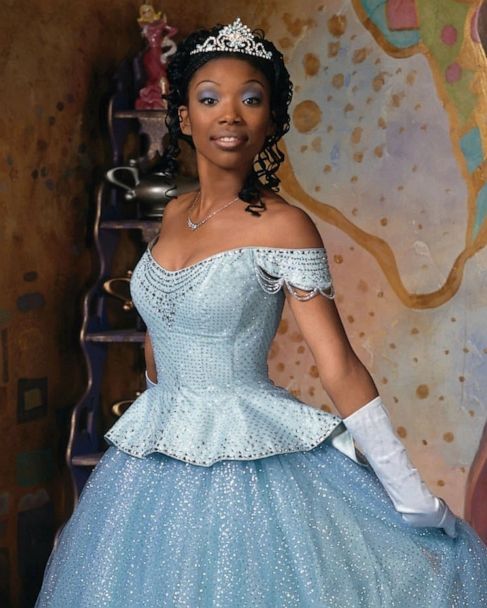
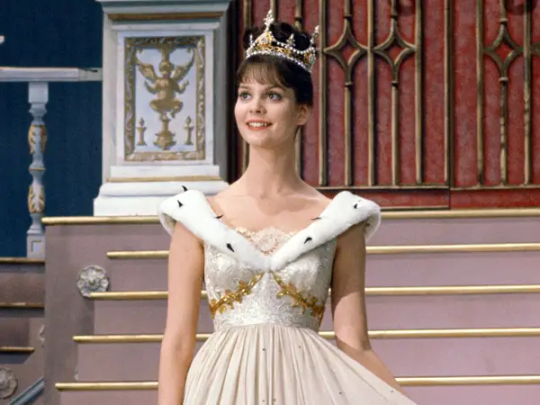

Propaganda Under the Cut
Julie Andrews as Cinderella (1957 Movie):
((This movie is the Julie Andrew’s one.))
Lesley Ann Warrens as Cinderella (1965 Movie):
tbh I think that both other films for this version are superior to this one, but I want the full 128 bracket so I might as well submit this. Starring Lesley Ann Warren as Cinderella, it's a distinct remake of the Julie Andrews version (which was incredibly popular, but hadn't been filmed in color, thus the studio's decision to make a new one). It is admittedly more similar to the 1957 version than the 1997 version was, so if you don't want to accept it as its own story that's fine; but there *are* some differences in the script, songs, and acting choices for the characters. I haven't seen this version of the film since I was VERY young, so I can't speak on the quality or anything lol, but I remember that I really really liked it when I was five, before the 1997 version came out and consumed me lol. I had briefly considered submitting it earlier because it felt unfair to have Julie Andrews and Brandy Norwood both have a slot while poor Lesley Ann Warren was left out, but ultimately decided she probably wouldn't get very far. But now I'm reconsidering lol sooooo yeah. A third version of Rodger's and Hammerstein's Cinderella for your consideration XD
Brandy as Cinderella (1997 Movie):
Because she is so cute in this, I love her outfits before and after the transformation, and this movie is just such a good adaptation of Cinderella.
the 1997 cinderella movie is the best one ever to me like. you have whitney houston as the fairy godmother and brandy is so so so pretty and she's such an amazing cinderella. 10 minutes ago the best cinderella song of all time ever she sounded so good <3
does this movie even NEED propaganda?
Brandy Cinderella with Whitney Houston! Need I say more?
Brandy plays one of the best iterations of Cinderella actually.
I just think she's neat. Also she looked the best in the ball gown.
One of the most iconic Cinderellas of all time, Brandy brought tenderness, earnestness, and heartfelt poignancy that transformed the story and emphasized its humanity and themes of dreaming for the future. Her voice is celestial! The power of her performance is undeniable! As a lifelong Cinderella fan she was always one of my favorites.
A lot of children grew up watching this movie around the holidays.
This is my favorite version of Cinderella and Brandy absolutely KILLS IT as Cinderella!! Her voice is so sweet and beautiful. And her dress!! I love her peplum. ALSO HER BRAIDS MAKE A BUN AND ITS SO ADORABLE. just look up the soundtrack for this movie PLEASE.
Various Actresses as Cinderella in the 2015 Musical:
[No Propaganda Submitted]
#cinderpoll#preliminary round#preliminary poll#preliminaries#poll tournament#character polls#poll bracket#polls#cinderella#fairytale#rodgers and hammerstein#rodgers and hammerstein's cinderella#rodgers and hammerstein's cinderella (1957)#rodgers and hammerstein's cinderella (1965)#rodgers and hammerstein's cinderella (1997)#rodgers and hammerstein's cinderella musical#julie andrews#lesley ann warren#brandy
54 notes
·
View notes
Text

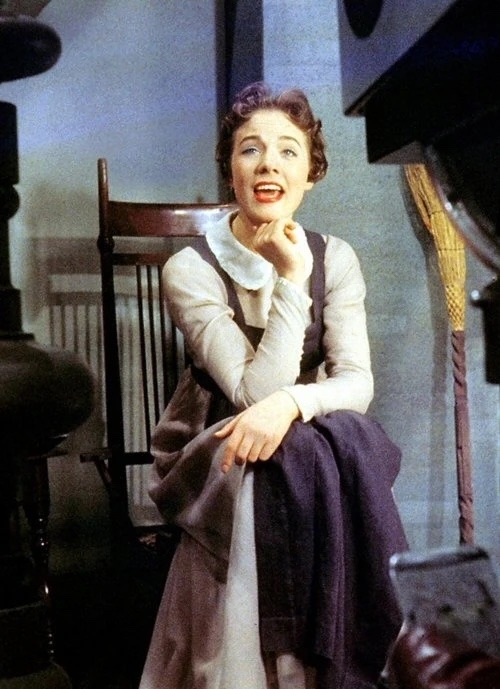


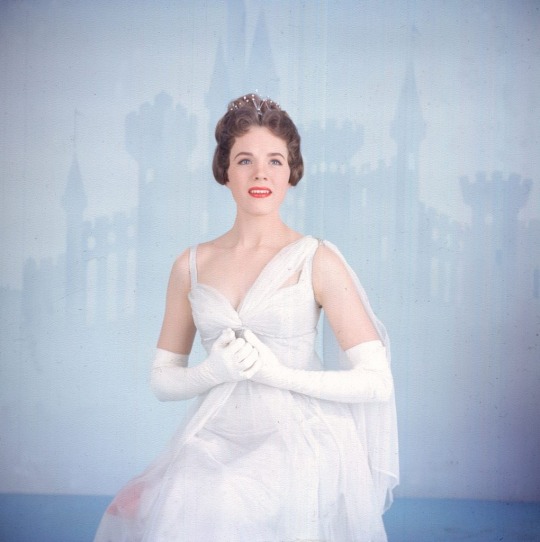
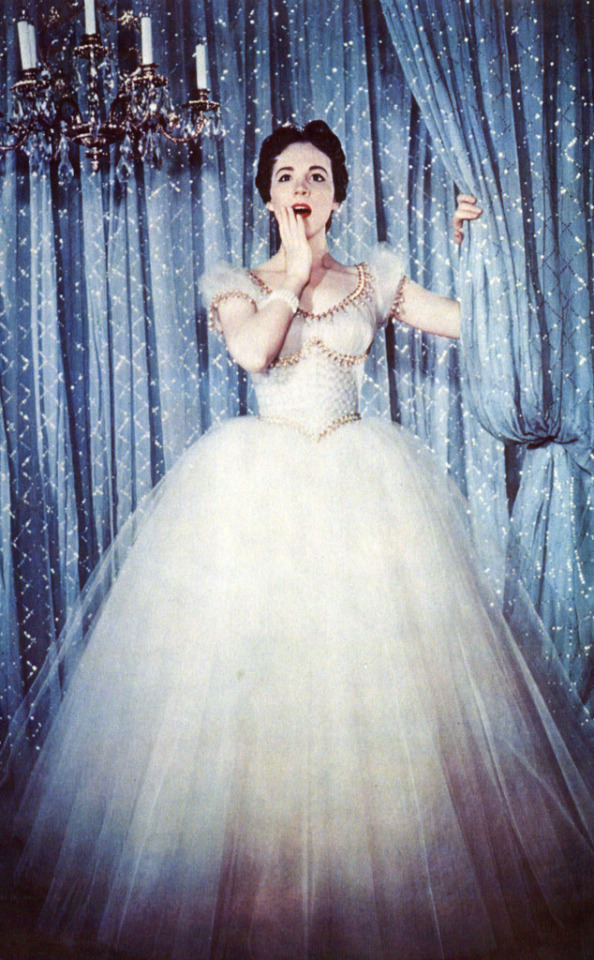

Rodgers and Hammerstein’s “Cinderella,” starring Julie Andrews, aired Live on CBS #OnThisDay in 1957.
74 notes
·
View notes
Text

#cinderella#cinderella disney#cinderella 1950#cinderella 1957#cinderella 1965#cinderella 1997#ever after#ever after 1998#a cinderella story#ella enchanted#another cinderella story#cinderella 2015#cinderella 2021#polls#my polls#julie andrews#brandy#drew barrymore#hillary duff#anne hathaway#selena gomez#lesley ann warren#lily james#camila cabello#ilene woods#mine's the 1997 cinderella#i was like 6 when it came out though i probably first watched when i was 8 or 9 because back then we got movies with delay over here
292 notes
·
View notes
Text
Some people say that Cinderella has been adapted too many times, but personally, I'm glad that so many different versions exist.
I've just been reading some of Tumblr's debates (mainly centered around Disney's 2015 film) about whether it's right or wrong for Cinderella to forgive her stepfamily in the end. Predictably, it's a controversial subject. This is one of the main reasons why I'm glad there are many adaptations of Cinderella. Each has its own unique tone and emphasizes different themes, which lead to different outcomes for the stepfamily in the end. So there's no single way that the story of Cinderella encourages real-world abuse victims to relate to their former abusers. From a wide array of different valid interpretations of the tale, we can choose the ones that we personally find the most resonant.
Here are just a few of the best examples:
Disney's 2015 live action Cinderella centers on Ella's resolve to "have courage and be kind," despite all the hardships she goes through. It's about staying true to your values against all odds. Lady Tremaine's own past suffering has made her bitter, selfish, and spiteful, and she would love to see Ella change in the same way, but Ella refuses. Hence her forgiveness of Lady Tremaine in the end serves as an empowering act; it's the ultimate loyalty to her value of kindness, and the ultimate proof that she'll never be like her stepmother.
Rossini's 1817 opera La Cenerentola likewise revolves around "the triumph of goodness." Although the emphasis is less on Angelina's choice to stay kind against all odds, and more on social commentary: i.e. that kindness and virtue matter more than social status, wealth, or power. So again, it's important that even after she rises to royalty and has the power to punish her stepfamily, Angelina stays true to her compassionate nature, forgives them, and saves them from the financial ruin they've brought on themselves.
Disney's 1950 animated classic, on the other hand, is less about staying true to your values than about hope in the face of adversity. While Cinderella's kindness is still important, the bigger emphasis is on her persistent faith in her dreams of happiness, and despite all of Lady Tremaine's efforts to crush it, her optimism wins. In a story that's first and foremost about faith and hope, it doesn't matter whether the villains are forgiven or punished. Hence the stepfamily is simply absent from the happy ending.
The 1997 remake of the Rodgers and Hammerstein musical, on the other hand, has its Cinderella learn to do more than just dream of a better life, and learn that she deserves to be loved and has no obligation to her abusers just because they're her "family." Hence the climax where she finally resolves to run away, which leads to the Prince discovering her outside just in time, and the ending where the castle gates are slammed in the stepfamily's faces.
The original 1957 version of Rodgers and Hammerstein's musical has a similar arc for Cinderella, culminating in her running away. But the script's tone is more playful and satirical as a whole. So in the end, the stepfamily is allowed to attend the wedding, fawning obsequiously over Cinderella now that she's a princess, and it seems that they'll always be a part of the royal family's lives as annoying yet harmless in-laws, much like Jane Austen antagonists.
1955's The Glass Slipper, which averts the traditional gentle and kind Cinderella and instead lets Ella be an angry, unsociable rebel, isn't about any of the above themes. Instead it's the tale of an emotionally scarred, self-hating outcast who finally finds love and acceptance and who learns to open her heart to it. The stepfamily's role in this version is understated, so seeing them reluctantly curtsey to Ella near the end is all the closure we need for them.
1998's Ever After has its heroine come into her own as a strong, clever, idealistic woman who will be an excellent future queen, and teach her prince to be a better future king too. Hence her settling her stepfamily's fate in a way that combines regal diplomacy and mercy with justice: reducing their sentence from deportation to the tit-for-tat punishment of being reduced to servants. The fact that Baroness Rodmilla not only abused her, but sold her into slavery to a lascivious man, makes it all the more appropriate that Danielle doesn't forgive her: an act like that crosses a certain line.
All of these different twists are valid. Each adaptation's different themes suit the story well, and each different ending for the stepfamily fits the tone and themes of the adaptation. None should be taken as the ultimate message of how to deal with abusers. But I'm glad that they all exist and offer different perspectives to explore and choose from.
#cinderella#fairy tale#adaptations#themes#cinderella's stepmother#cinderella's stepsisters#tw: abuse mention
91 notes
·
View notes
Text


#musical theater#do you know this musical#poll#Rodgers and Hammerstein’s Cinderella#Cinderella#richard rodgers#oscar hammerstein ii#douglas carter beane#language: english#movie musical
45 notes
·
View notes
Video
Julie Andrews, "In My Own Little Corner," Rodgers and Hammerstein's Cinderella, 1957
#julie andrews#cinderella#rodgers and hammerstein's cinderella#musical#rodgers and hammerstein#1950s#50s#black and white#kinescope#vid#tv#film
56 notes
·
View notes
Text
Rogers And Hammerstein film projects I have seen ranked
Just saw a production of Carousel recently so decided to rank thefilmed version of Rogers and Hammerstein I have seen
10.King and I 1999
SAw it as a kid,barely remember it save for how weird it was
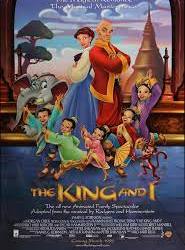
9.Cinderella 1957
So of the three versions of Cinderella this is my least favorite

8.South PAcific 1958
I just dont like this play in general beyond the music

7.Oklahoma 1955
Rod Steiger is good but I think this is a meh
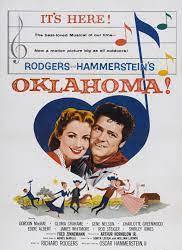
6.Carousel 1956
Its a decent film ,You'll Never Walk Alone is one of their best songs though

5.Oklahoma 1998-Good cast though I find it funny that Van Helsing is a Oklahoma reunion
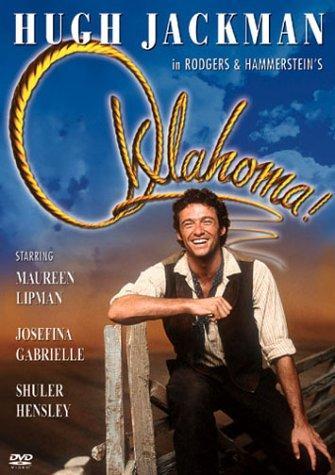
4.King and I 1956
DEobrah Kerr and Yul Brynner have fire chemistry

3.Sound of Music 1965
Of the big screen Rodgers and Hammerstein films this is by far the best

2.Cinderella 1997
Honestly these top 2 flip flop for me cause this is an amazing production with a fabulous cast
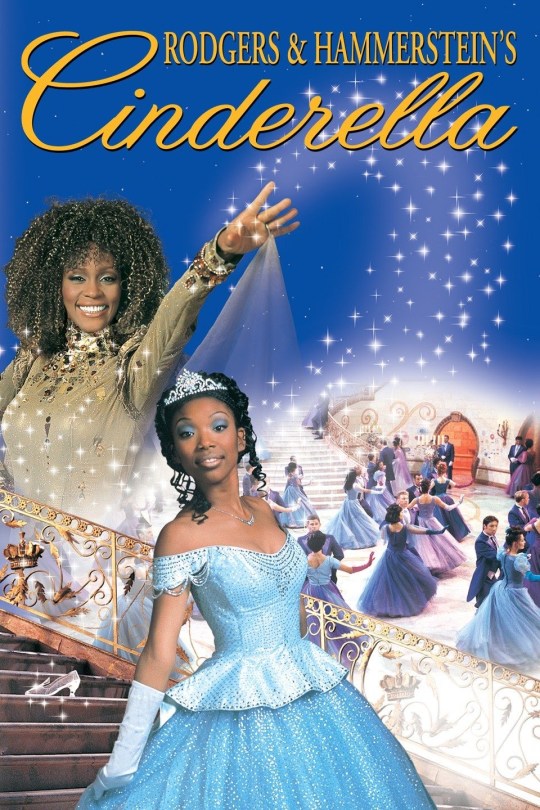
Cinderella 1965
However this is the first Rodgers and Hammerstein thing I fully fell in love with
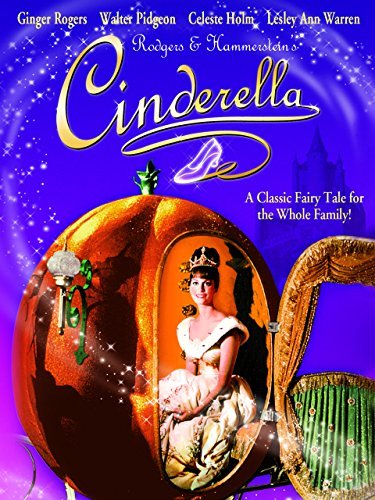
Whats your rankings?Agree? Disagree ?
@filmcityworld1 @ariel-seagull-wings @goodanswerfoxmonster @the-blue-fairie @princesssarisa @amalthea9 @themousefromfantasyland @theancientvaleofsoulmaking @autistic-prince-cinderella
13 notes
·
View notes
Video
youtube
Impossible/It's Possible | From RODGERS & HAMMERSTEIN'S CINDERELLA (1957)
But the world is full of zanies and fools
Who don’t believe in sensible rules
And won’t believe what sensible people say
And because these daft and dewey-eyed dopes
Keep building up impossible hopes
Impossible things are happening every day
2 notes
·
View notes
Text
the movie motive: so, I rewatched brandy's cinderella
by amy evans / instalment 002 of her column the movie motive

For me, it’s always hardest to write about films that I have already watched multiple times and know that I like. As 2022 is the 25th anniversary of Cinderella (1997), which stars Brandy and Whitney Houston, being released, I knew that I wanted to dedicate an entry of my film column to it.The film also stars Victor Garber, Whoopi Goldberg and Bernardette Peters, which actually makes it quite star-studded, especially for a made for TV film, as well as the (then-)newcomer Paolo Montalbán as Prince Christopher. This 1997 production of Rodger and Hammerstein’s Cinderella is a really fun film and for me, it stands out amongst the array of live action fairytale films that we have had as one that works well and is able to take risks that pay off. The movie is also especially relevant considering the conversations that are being had currently about inclusivity in film and colour-blind casting - such as the likes of Disney’s upcoming films The Little Mermaid starring Halle Bailey and Snow White starring Rachel Zegler.
The movie is also especially relevant considering the conversations that are being had currently about inclusivity in film and colour-blind casting.
Rodger and Hammerstein’s Cinderella was first adapted for Broadway in 2008 - I was surprised that it wasn’t produced on Broadway until over a decade after this film version was released. The first version of Rodger and Hammerstein’s Cinderella was actually also a made-for-TV movie, in 1957, starring the legendary Julie Andrews in the title role. Another TV movie version was also made in 1965. Like many others who were born decades after the 50s and 60s versions aired, I am only familiar with the 1997 version, as it’s the one I grew up watching. Though I haven’t watched the older TV versions, from listening to the soundtracks and watching clips from them, they seem very different despite using some of the same songs and having the same basic story. For example, the 1997 version adds additional songs from Rodger and Hammerstein’s catalogue in order to give a song to the stepmother (Falling in Love with Love, originally from The Boys from Syracuse) and for the fairy godmother to sing as the finale song (There’s Music in You, originally from Main Street to Broadway). Before the 1997 version, there were also theatre productions, both in the UK and US. The legacy that the 90s version is following is, therefore, both a TV and theatre legacy.
The colour-blind casting of this version, with a Black Cinderella (Brandy) and Filipino Prince Christopher (Paolo Montalbán), is definitely one the things it is best known for. Considering that it is only really in recent years that it has become expected for films to have more inclusive casting, particularly in fantasy or period pieces, the 1997 Cinderella is years, if not decades, ahead of its time. Even today, people are still divided over how casting should be done. From the previously mentioned upcoming Disney remakes, to period dramas (think Bridgerton and the recent Persuasion), to fantasy (such as Rings of Power), casting decisions seem to be a point of clash for many TV and film fans. I think this version of Cinderella really shows that colour blind casting does work. The cast works so well together and their performances are a large part of what makes this film still stand up to this day. They just look like they are having fun on set, and they bounce off each other really well. I loved the humorous moments between the king and queen played by Victor Garber and Whoopi Goldberg.
Even today, people are still divided over how casting should be done.
Having a diverse cast means that the world of the film feels like a place where anyone can belong, and though it is ‘just a movie’, I think that the impact, especially on young people, of seeing a range of people in lead roles cannot be underestimated. In my opinion, films that have more inclusive casting are often criticised in a way that blames any shortcomings on them being too ‘woke’, ignoring the other elements that contribute towards the quality of the film. Blaming everything on casting decisions feels rooted in racism and prejudice - the idea that something that includes people of all races is somehow automatically worse is something that I really disagree with. It seems ridiculous that 25 years after Cinderella, colourblind casting is still something so contentious.
It’s important to also note that there are different ways of creating inclusive projects - colourblind casting is one approach, but it can also be about producing stories that highlight different groups and cultures and casting people from those communities in the roles. There are valid criticisms of casting in a way that diminishes the struggles that marginalised people in history - one example that comes to mind is Bridgerton’s treatment of race, which, though it could be praised on the one hand for presenting people of colour as romantic leads in a period setting, at the same time also glosses over the way that the actual Regency period that it romanticises was also a time of empire and colonisation. I don’t think there is one ‘right’ approach to casting something for the screen, but I do think it is worth thinking about which approaches work for different projects.
There are a lot of reasons that Cinderella is still so watchable to this day. The cast performances, as I touched on before, are really just fantastic. For me, Whitney Houston is definitely the stand-out supporting cast-member, as her vocal performances are so stunning and wonderful, and I think she plays really well opposite Brandy’s Cinderella. Of course, I have to mention Brandy in her role as Cinderella. It could be seen as a risky choice casting an R&B singer in the role, but I feel like she is so believable in this role and performs it really well. Paolo Montalbán is also great as the prince, a character who is more developed in this version than in some other adaptations. Cinderella splits the focus between the prince and Cinderella, and I feel like we spend more time seeing the prince’s perspective, which adds more depth to the story.
Colourblind casting is one approach, but it can also be about producing stories that highlight different groups and cultures and casting people from those communities in the roles.
The actors all perform their characters with a kind of groundedness and modern sensibility which helps make the well known plot feel more believable and stops it from tipping too far into pantomime territory (even the stepsisters and stepmother, who do provide a lot of the comedy and silly moments in the film, are not played as exaggeratedly as they could be and often are in Cinderella adaptations).
Beyond the cast though, the soundtrack is wonderful. There are some lovely songs in this movie - I think my favourites are probably ‘The Prince is Giving a Ball’ and the final song ‘There is Music in You’. I also love how colourful this film is - as I was re-watching the film I kept thinking that it looks almost like Disneyland because of how everything looks so bright and magical. The costumes are just full of colour as well which I really like, and it adds to the joyful tone of the movie .
I feel like this film is an example of how a fairytale story can be modernised well. For me, when it comes to fairytale movies, the story by itself isn’t really enough to keep my interest, because we’ve all heard them a million times. I love when adaptations bring a bit of extra charm and fun to the story. I think that Rodger and Hammerstein’s music, combined with the wonderful cast, and the fun and colourful costumes, bring a lot of heart and a warm tone to the whole film. It shows how a fairy tale can be modernised even without setting it in the real world, which is often the approach taken to ‘update’ a story. For example the Cinderella Story movies place the story structure of Cinderella in a modern world with cell phones (who can forget Hilary Duff’s iconic ‘Laugh Out Loud’?) and college admissions. Obviously this modernises the story by literally setting it in the 21st century, and updating characters to have the same concerns as their audience, like being unpopular in high school and trying to fit in.
For me, when it comes to fairytale movies, the story by itself isn’t really enough to keep my interest, because we’ve all heard them a million times.
Meanwhile, the 1997 Cinderella is still undoubtedly modern, even though it is set in the historically inspired storybook world that we expect from fairytale adaptations. Even with my lack of musical expertise, comparing the soundtracks for the older TV versions to the 90s version, it is clear that the music has been ‘updated’ in terms of moving away from the more traditional sound to something more current. Additionally, having the recognisable voices of celebrity vocalists Whitney Houston and Brandy also brings a more contemporary feel to the soundtrack. The film also clearly takes inspiration from its own time in how the actors are styled and dressed, with Brandy having iconic box braids for much of the film, and the costumes often looking like they wouldn’t be too out of place at someone’s prom or wedding. The dialogue is also relatively modern.
The story of Cinderella is one that seems to keep inspiring more adaptations on stage and on-screen - from the many versions of Rodger and Hammerstein’s Cinderella, to Disney’s animated and live action versions, to the Cinderella Story movies. I think it’s really cool that one story can inspire so many different retellings, and the 1997 movie is definitely one to watch (or rewatch!).
3 notes
·
View notes
Note
Filmes favoritos baseados em Contos de Fadas que NÃO foram produzidos pela Disney?
Into the Woods
Eu tô trapaceando, porque não é um filme, é só a gravação profissional do musical, nesse caso a produção feita no Regent's Parks, Londres.

Eu acho que ainda tenho a produção no meu MEGA. Ilegalmente, diga-se de passagem 😂
Into the Woods é meu musical favorito de todos os tempos, e essa é a minha produção favorita. Trocar o narrador por uma criança que no final assume o papel do filho do padeiro que ouve a história toda de novo do pai... Desculpa, mas isso é tão satisfatório e casa tudo tão certinho.
Eu tenho um headcanon que o primeiro ato são só as histórias que o pai costumava contar. Já o segundo ato é inspirado por coisas que ele viu na própria família e por isso é tão mais sombrio e trágico que o início da história. Assim como o pai se torna o padeiro na história, quando ele voltar pra casa ele vai achar um casal de irmãos mais velhos, uma sendo a cara da Chapeuzinho, o outro a cara do João, e uma tia ajudando a tomar conta da casa, sendo a cara da Cinderela.
Todos os Episódios de Os Melhores Contos de Grimm
Eu costumava assistir a série no Globosat. Cada episódio é quase um mini filme. Tenho certeza que é Alemã.
A melhor parte são os castelos antigos, as cidades germânicas velhas, o horizonte cheio de florestas até onde o olho pode ver. É assim que eu imagino o mundo dos contos de fadas se parece. É perfeita em todos os sentidos.
As Animações da União Soviética
Eu não conheço muita coisa da produção dessas animações. Umas são curtinhas, outras são verdadeiros filmes. Os Cisnes Selvagens, Cinderela, A Pequena Sereia, A Rainha da Neve.
Eu agrupo essas por que tem uma estética similar. São lindamente etéreas, quase de outro mundo.
Cinderela (1947)
Achei esse filme soviético por acaso no YouTube. As cenas do baile são lindas, e ele tem um ar tão lúdico e inocente.
A melhor adição a história foi o garotinho que é quase um assistente da Fada Madrinha. O rei a todo momento querendo virar monge foi bem engraçado.
Um Conto Sombrio dos Grimm
Eu estou trapaceando de novo. Não é um filme. É uma série de animação da Netflix inspirada no livro. Eu tenho que checar o livro mais tarde.
João e Maria é a história mais famosa, o resto são contos menos conhecidos, e é tão satisfatório reconhecer cada um dessas histórias.
Rodgers and Hammerstein Cinderella (1957)
O musical começou com um filme pra TV feito em 1957 com a Julie Andrews como Cinderela. Tirando as canções do filme da Disney, essas músicas são as que eu mais associo com a Cinderela. Mas eu confesso que prefiro a versão pra Broadway de 2013.
Xuxa e o Mistério de Feiurinha
"Princesas unidas, jamais serão vencidas" está gravado na minha mente até o dia que eu morrer.
Um pouco tosco, mas tão nostálgico.
Branca de Neve (2001)
Pra ser sincero, a sub-trama do Mestre dos Desejos libertado e da irmã dele que vira a Rainha Má não levam a lugar algum, mas ainda são ótimas adições. Eu sempre valorizo adaptações que não vão na rota óbvia da Disney e tentam ser sua própria coisa, e esse filme tenta e merece esse crédito.
Espelho, Espelho Meu
Eu amo comédias românticas, e os cenários e o figurino fazem esse esse filme ser a melhor adaptação da Branca de Neve de 2012. A cena final dela cantando com os anões e os convidados do casamento é a melhor parte do filme.
Me incomoda que eles não tenham usado a maçã envenenada pra nada. Se queriam uma Branca de Neve espadachim podiam ter pelo menos dado pro Príncipe, aí ela teria que salvar ele da Rainha no climax. E pra ser sincero, é difícil levar o filme a sério sendo que o Príncipe é o Armie Hammer. Esse é literalmente o tipo de homem que os Irmãos Grimm avisaram a gente sobre.😂
A Bela e a Fera (2014)
Eu ainda acho que a Bela e a Fera não tem química nessa versão, e a tentativa de usar os cães do príncipe como alívio cômico é estranha.
Mas vale a pena pelos cenários, os figurinos. Os atores em si são bons. O Príncipe ser amaldiçoado por que matou acidentalmente a filha do Deus da Floresta foi uma adição interessante, e a Fera ter deixado de ser príncipe pra viver uma vida mais simples com a família da Bela foi algo que eu não estava esperando. Melhor que o de 2017.
Os Irmãos Grimm
Eu amo a estética desse filme, e em diversos momentos é como se um conto de fadas original mas com um orçamento maior.
Mas o nerd em mim fica um pouco incomodado que eles usaram algumas histórias que não eram dos Grimm. João e o Pé de Feijão é inglês, e não Alemão.
A Franquia Shrek
O 2 é o meu favorito de toda a franquia.
Uma parte de mim ainda tenta entender como os contos de fadas funcionam neste mundo.
Eles são algum tipo de minoria perseguida? Quando Farquad expulsa os seres de contos de fadas de Duloc pro pântano do Shrek no primeiro filme, alguns deles são humanos.
Talvez seja só os seres mágicos?
Mas então por que criaturas como a Fada Madrinha são tão famosas. Os seres mágicos parecem ser muito bem aceitos em Tão Tão Disntante.
Tão Tão Disntante é o reino dos personagens de contos de fadas?
Se sim, por que só a família da Fiona parece estar no controle. E cadê o príncipe das outras princesas. Encantado parece ser o único príncipe, e das princesas, só a Rapunzel parecia ter um relacionamento mais íntimo com ele.
2 notes
·
View notes
Text
LOSER'S BRACKET NOMINATIONS!
It is time to announce the LOSER'S BRACKET!
The Loser's Bracket is meant to give some love to characters who lost early, so anyone who has made it to the Quarterfinals and farther (even if they lose there) has gotten far enough they don't really need the love of the Loser's Bracket. During our last tournament Red Riding Poll, the Loser's Bracket winner was a character who hadn't even made it out of Round 1! This is for all the characters who might have been less recognizable but still awesome, to all the characters that got overshadowed by others.
The rules for nominations:
The Loser's Bracket will be either a 16 or 32 single elimination bracket, depending on the amount of nominations that are sent in.
Unlike the main tournament, where the polls each lasted a week, the polls for the Loser's Bracket will last only a day. That means the entire Loser's Bracket will probably last around a week.
Nominate as many characters as you want, but don't nominate the same character multiple times. Be mindful that the most nominated characters will be the ones that will make it to the bracket. Also nominate characters one at a time.
Propaganda from the Main Tournament will not appear, but feel free to submit any propaganda you want for why the character should win the Loser's Bracket!
Nominations open today and will close on the 15th of January, the same day the Quarterfinals of the main tournament loses.
Be respectful! Just because your fave didn't make it as far as you wanted in the main tournament or the Loser's Bracket, doesn't mean that the other contestants aren't worthwhile either! Remember, every character in this tournament have people who love them just as much as you love your fave, so please be courteous!
NOMINATE CHARACTERS HERE
Under the cut is a list of every character who has lost & which round they lost in. Feel free to consult the list if you want to jog your memory on which Cinderellas you might want to nominate.
Preliminary Round Losers
Danielle de Barbarac (Ever After novel by Wendy Loggia)*
Danielle de Barbarac (Ever After the Musical)*
Julie Andrews as Cinderella in Rodgers & Hammerstein's Cinderella (1957)**
Leslie Ann Warrens as Cinderella in Rodgers & Hammerstein's Cinderella (1965)**
Various Actresses as Cinderella in Rodgers & Hammerstein's Cinderella the Musical (2015) **
Cinderella (Hey, Cinderella!)
Pigerella (Muppet Babies 1984)
Peter Parker / Prince of Arachne (Spider-Man Fairy Tales)
*Not to be confused with Danielle de Barbarac from the movie Ever After (1998), which has placed in the quarterfinals of the main tournament.
**Not to be confused with Brandy as Cinderella in Rodgers & Hammerstein's Cinderella (1997), which lost in Round 1.
Round 1 Losers
Ella (Disney's Cinderella live-action)
Hello Kitty as Cinderella (Hello Kitty no Cinderella)
Vasilisa the Beautiful (Russian/East European Fairytale Variant)
Rhodopis (Greek Fairytale Variant)
Eun Ha Won (Cinderella with Four Knights)
Mireleh (The Way Meat Loves Salt by Nina Jaffe/Louise August)
Leila Takashiro (Hime Chen! Otogi Chikku Idol Lilpri)
Hoshizora Miyuki / "Cure Happy" as Cinderella (Smile PreCure / Glitter Force)
Isabell Heartwell (Cinder's Ball)
Cinderella (Mary Skelter)
Ella of Maidenvale / Cinderella (The School for Good and Evil by Soman Chainani)
Eleanor / Cinderella (The Wide-Awake Princess by E.D. Baker)
Vassa (Vassa in the Night by Sarah Porter)
Cinderella (Fables)
Rose Cinderella (Regal Academy)
Maria Aparecida "Cida" dos Santos Souza (Cheias de Charme)
Ella of Frell (Ella Enchanted 2004)*
Danielle Whiteshore (nee de Glas) (Princess series by Jim C. Hines)
Jess Parker (The Cinderella Society by Kay Cassidy)
Fairy Tail - Rella (Yu-Gi-Oh! TCG)
Cindy (How to Save Your Tail by Mary Elizabeth Hanson)
Cinder Edna (Cinder Edna by Ellen Jackson)
Elle Wittimer (Geekerella by Ashley Poston)
Sophie Beckett (An Offer From a Gentleman by Julia Quinn)
Cynthia "Cyn" Robinson (Cinders) (Sapphic Fairy Tales by Cara Malone)
Lucina Jarvis (Grimm)
Mary Santiago (Another Cinderella Story)
Cinderella (Cinderella 2021)
Cinderella (Bad Cinderella)
Cinderella (The Slipper and the Rose)
Threadarella (Monster High: Scarily Ever After)
Popelka (Three Wishes for Cinderella)
CinderElmo (Sesame Street: CinderElmo)
Minnie Mouse as "Minnie-rella" (Mickey Mouse Clubhouse)
Brittany Miller as Cinderella (Alvin and the Chipmunks)
Cinderella (Sabrina: The Animated Series)
Fella (CinderFella)
Cinderella (Swing Shift Cinderella)
Yasmin as Cinderella (Bratz: Kids Fairy Tales)
Cinderella (Collector Plates)
Touya Kinomoto as Cinderella (Cardcaptor Sakura)
Reki Kyan as "Cindereki" (Sk8 the Infinity)
Cinderella (Stand of Aya Tsuji) (Jojo's Biazzre Adventure Part 4: Diamond is Unbreakable)
Dulcie Hastings (nee Duveen) aka Cinderella (Murder on the Links by Agatha Christie)
Scarecrow as "Scarecrowello" (D'Ocon Mumfie)
Cinderella (Girl Genius Fairytale Theater Break: Cinderella)
Cendrillon (Cendrillon by Telephone)
Morgan Philips (Disenchanted)
Cinderella (Dimension 20: Neverafter)
Brandy as Cinderella (Rodgers & Hammerstein's Cinderella 1997)
Cinder Fall (RWBY)
Cinderella / Princess Ella / Ashley Boyd (Once Upon a Time)
Cinderella (Kingdom Hearts)
Cinders (Cinders)
Cinderella (SINoALICE)
Cinderella (Sid Story)
Xing Xing (Bound by Donna Jo Napoli)
Clara (Confessions of an Ugly Stepsister by Gregory Maguire)
Kate Kassell / Nate Ganymede (After the Ball)
Shindou Rei (Boku wa Ohime sama ni Narenai)
Haine Otomiya / "Seashore Cinderella" (The Gentleman's Alliance Cross)
Ghauri (Azure Striker Gunvolt)
Cinciarell Winchestion (Don't Call Javotte an Evil Stepsister)
Cinderella (Blood Bank)
*Not to be confused with the original book Ella Enchanted by Gail Carson Levine, which has placed in the quarterfinals in the main tournament.
Round 2 Losers
Hatsune Miku as Cinderella (Various Songs) (Vocaloid)
Ye Xian (Cinderella Fairytale Variant)
Hamupipőke (Hungarian Fairytale Variant)
Cendrillon (Otogi-Juushi Akazukin)
Cinderella (Grimm Notes)
Elegant "Ella" Herringbone Coach (Disenchanted: The Trials of Cinderella by Megan Morrison)
Vasilisa "Vasya" Petrovna (The Winternight trilogy by Katherine Arden)
Cinderellis (Cinderellis and the Glass Hill by Gail Carson Levine)
La Cenerentola (La Cenerentola (La Cenerento Laossia La Bontà in Trionfo)
Imogen Keegan (Damsel Distressed by Kelsey Macke)
Cinderumpelstiltskin (The Stinky Cheese Man by Jon Scieszka/Lane Smith)
Bronwyn Murdoch (The Prince Who Loved Me by Karen Hawkins)
Queen Cinderella (10th Kingdom)
Katie Gibbs (A Cinderella Story: Once Upon a Song)
Ella (Happily N'Ever After)
Ashlynn Ella (Ever After High)
Baby Gonzo as "Gonzo-rella" (Muppet Babies 2018)
Chuckie Finster as "Finsterella" (Rugrats)
Betty Boop as Cinderella (Betty Boop: Poor Cinderella)
Ella (Total Drama: Pahkitew Island)
Mettaton as Cinderella (Undertale)
Cinderella (Once Upon a Crime)
Ella Brown (Just Ella by Margaret Peterson Haddix)
Cinderella (Cinderella by The Cheetah Girls)
Linh Cinder / Selene Blackburn (The Lunar Chronicles by Marissa Meyers)
Carrie White (Carrie by Stephen King)
Lucette Riella Britton (Cinderella Phenomenon)
Cinderella (TAISHO x ALICE)
Aisling "Ash" (Ash by Malinda Lo)
Euphemia "Effie" Reeves (Ten Thousand Stitches by Olivia Atwater)
Cinderella (Cinderella Monogatari)
Itsumi Tachibana (You Are My Princess)
Round 3 Losers
Cinderella/Aschenputtel/Cendrillon (German/General European Fairytale Variant)
Settarah (The Persian Cinderella by Shirley Climo/Robert Florczak)
Giselle Lai (Cinderelle)
Mia Basile (Cinderella the Cat)
Cinderella / Prinzessin (Yu-Gi-Oh! Duel Monsters & TCG)
Cindy (If the Shoe Fits by Julia Murphy)
Sam Montgomery (A Cinderella Story)
Ella (The Glass Slipper)
Scrooge McDuck as "Scroogerello" (Ducktales 1987)
Popeye the Sailor Man as "Cinderfella" (Popeye the Sailor Man: Ancient Fishtory)
Cendrillon (Persona of Sumi Yoshizawa / Violet) (Persona 5)
Harper Finkle as "Harperella" (Wizards of Waverly Place)
Cinderella (Into the Woods)
Rin Hoshizora as Cinderella (Love Live!)
Cinderella (Burn the Witch) (Bleach)
Ashley Vans (A Wicked Tale of Cinderella's Stepmom / I Raised Cinderella Preciously)
Round 4 Losers
Cinderella (Disney's Cinderella)
Cinderella "Cindy" Baxter (The Sisters Grimm)
Cinderella (Cinderella Penguin, or, the Little Glass Flipper)
Ella (Cinder Ella) (Black Trans Fairy Tales)
Barbie as Cinderella (Barbie Dolls)
Saki Hanajima as "Cinderella-ish" (Fruits Basket)
Cinderella (Shrek)
Miyo Saimori (My Happy Marriage)
#cinderpoll#loser's bracket#poll tournament#poll bracket#character polls#polls#cinderella#fairytale#going to tag the most notable characters as well i.e. the ones i remember being popular#brandy as cinderella#rodgers and hammerstein's cinderella#rodgers and hammerstein's cinderella 1997#linh cinder#the lunar chronicles#disney's cinderella#into the woods#popelka#three wishes for cinderella#tři oříšky pro popelku#dimension 20#dimension 20: neverafter#ashlynn ella#ever after#cinder fall#rwby#god i hope i didn't make any typos in the long list but i am too tired to go back and check lmao
14 notes
·
View notes
Text

Recording “Rodgers and Hammerstein’s Cinderella” (1957), Alice Ghostley, Kay Ballard and Julie Andrews
24 notes
·
View notes
Note
This… out of curiosity
Do you know the different meanings of the name of Cinderella's Stepsisters?
Charles Perrault's Cendrillon
Javotte: A nickname for Geneviève, which means "of the race of woman," "woman of the family," or "white wave."
(Perrault only reveals the older stepsister's name in one scene, not the younger one's.)
Rossini's opera La Cenerentola
Clorinda: “Youthful” or “greenery.”
Tisbe: Unknown; it’s a name from Greek mythology.
Massenet's opera Cendrillon
Noémie: “Pleasantness.”
Dorothée: “Gift from God.”
The 1947 Russian film
Anna: “Grace” or “favor.”
Marianna: A cross between Mary, meaning “bitter,” “drop of the sea,” or “beloved,” and Anna (see above).
The Let's Pretend radio adaptation
Flora: “Flower.”
Isabella: A form of Elizabeth, meaning “My God is an oath.”
The Disney version, animated and live action
Anastasia: “Resurrection.”
Drizella: Probably a variant of Drusilla, meaning “little strong one.”
The 1955 film The Glass Slipper
Birdena: “Little bird.”
Serafina: “Fiery one.”
The 1957 version of Rodgers and Hammerstein's musical
Portia: “Pig.”
Joy: Self-evident.
The 1965 version of Rodgers and Hammerstein's musical
Prunella: “Little plum.”
Esmeralda: “Emerald.”
The Muppets' Hey, Cinderella!
Mona: “My lady.”
Lisa: Derived from Elizabeth, meaning “my God is an oath.”
Rankin/Bass's Festival of Family Classics
Fatima: “To abstain” (though it serves as a play on “fat,” because she is fat)
Leania: Probably derived from Helen, meaning “light” (though it serves as a play on “lean” because she’s scrawny)
The 1969 Czech film
Katerina: “Far off” or “pure.”
Dorota: "Gift from God."
The 1973 Czech film Three Wishes for Cinderella
Dora: “Gift.”
The 1976 film The Slipper and the Rose
Isobella: “My God is an oath” (see above).
Palatine: “Of the palace.”
The 1978 African-American adaptation Cindy
Olive: "Olive," of course.
Venus: "Love."
The Faerie Tale Theatre adaptation
Arlene: “Honor” or “eagle.”
Bertha: “Bright.”
The Grimm's Faerie Tale Classics adaptation (English dub)
Phoebe: “Bright.”
Griselda: “Gray battle.”
Stephen Sondheim's musical Into the Woods
Florinda: "Flower."
Lucinda: "Light."
The Happily Ever After: Fairy Tales for Every Child adaptation
Margarita: “Pearl” or “daisy flower.”
Esmeralda: “Emerald” (see above).
The musical A Tale of Cinderella
Moltovoce: “Much voice.”
Seppia: “Squid.”
The 1996 Burbank Animation version
Nellie: A nickname for Ellen or Helen, meaning “torch” or “light.”
Melba: Derived from Melbourne, Australia. Melbourne means “mill stream.”
(Their names are inspired by the famous Australian opera singer Nellie Melba, whose birth name was Helen Mitchell and who took her stage name from her home city of Melbourne.)
The anime series Cinderella Monogatari
Catherine: “Far off” or “pure.”
Jeanne: “God is gracious.”
The 1997 version of the Rodgers and Hammerstein musical
Minerva: “Intellect.”
Calliope: “Beautiful voice.”
The 1998 film Ever After: A Cinderella Story
Marguerite: “Pearl” or “daisy flower.”
Jacqueline: “Heel-grabber” or “supplanter."
Gregory Maguire's novel Confession of an Ugly Stepsister
Iris: "Rainbow" or "iris flower."
Ruth: "Friend."
Margaret Peterson Haddix's novel Just Ella
Griselda: "Gray battle" (see above).
Corimunde: Possibly a variant of "Clarimond," meaning "shining defender."
The Shrek franchise
Doris: "Dorian woman."
Mabel: "Lovable."
The 2000 stage version of the Rodgers and Hammerstein's musical
Grace: Self-evident.
Joy: Self-evident (see above).
The 2000 British TV film
Goneril: Unknown meaning.
Regan: "Little ruler" or "king's child."
(In case anyone didn't know it, their names are taken from the evil sisters in Shakespeare's King Lear.)
The Simsala Grimm adaptation
Agatha: “Good.”
Beatrice: "One who blesses.”
The novel and film Ella Enchanted
Hattie: A nickname for Harriet, meaning “home ruler.”
Olive: Self-evident (see above).
The 2004 film A Cinderella Story
Brianna: "High" or "noble."
Gabriella: "God is my strength."
Malinda Lo's novel Ash
Ana: "Grace" or "favor" (see above).
Clara: "Clear" or "bright.
The 2010 Märchenperlen adaptation
Clothilde: “Glorious battle.”
The 2011 Sechs auf einen Streich adaptation
Annabella: "Grace and beauty."
The 2013 stage version of the Rodgers and Hammerstein musical
Gabrielle: “God is my strength” (see above).
Charlotte: “Free woman.”
Alma Deutscher's opera
Griselda: “Gray battle” (see above).
Zibaldona: Possibly derived from Zebada, which is derived from Zebadiah, meaning “God has bestowed.”
Betsy Cornwell's novel Mechanica
Piety: Self-evident.
Chastity: Self-evident.
Andrew Lloyd Webber's musical Bad Cinderella
Adéle: “Noble.”
Marie: “Bitter,” “drop of the sea,” or “beloved.”
The 2021 Sony/Amazon film
Narissa: “Sea nymph.”
Malvolia: “Ill will.”
22 notes
·
View notes
Text
Draft count: 0
OOC: Watching Rodgers and Hammerstein’s Cinderella (the 1957 one!) and this is gonna be a hot take but I think this film version of the tale is the superior one (at least in my opinion lol) XD
0 notes
Text
Why have I only just now found out that Julie Andrews did Rodgers and Hammerstein’s Cinderella in 1957?
I know we all love the 1997 version but JULIE ANDREWS AS CINDERELLA!!!!!!!!!!!
0 notes